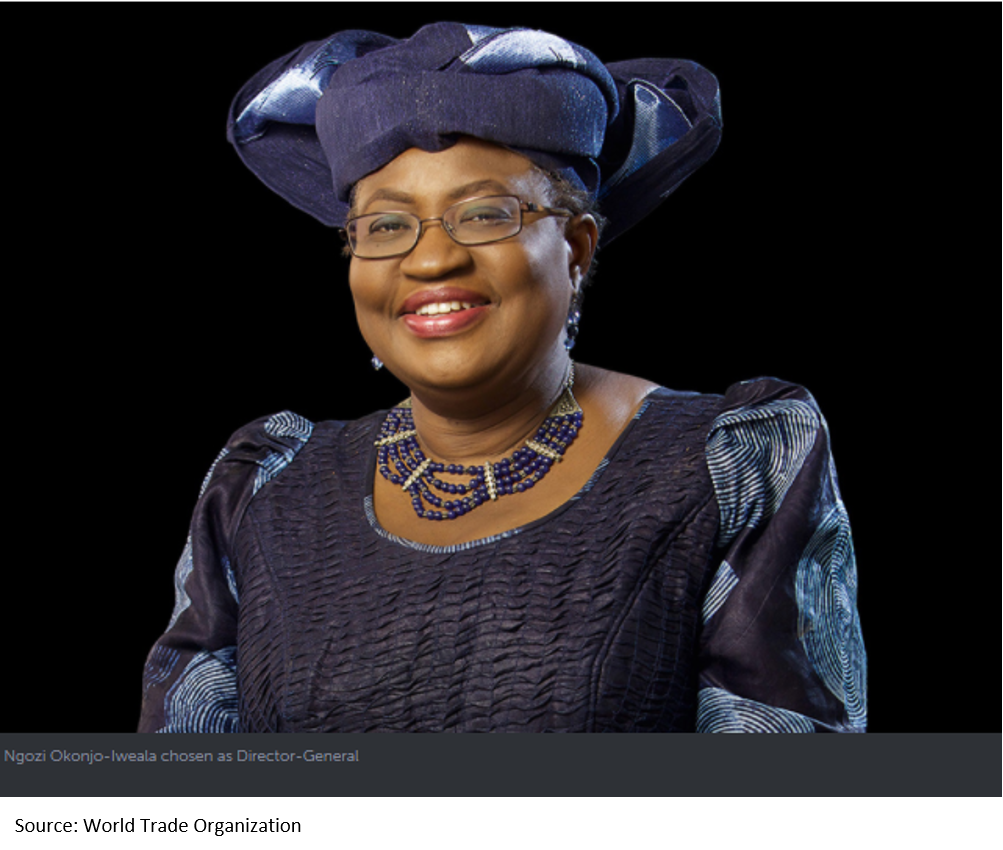Government/Policy

February 15, 2021
WTO Announces First Woman and African Director General
Written by Sandy Williams
The World Trade Organization made history on Monday with the appointment of Dr. Okonjo-Iweala as the first woman and the first African to be chosen as Director General.

Dr. Okonjo-Iweala will begin her term on March 1 and lead the WTO through Aug. 31, 2025. Economic and health consequences of the COVID-19 pandemic will be a key priority, she said.
“I am honored to have been selected by WTO members as WTO Director-General,” she said. “A strong WTO is vital if we are to recover fully and rapidly from the devastation wrought by the COVID-19 pandemic. I look forward to working with members to shape and implement the policy responses we need to get the global economy going again. Our organization faces a great many challenges, but working together we can collectively make the WTO stronger, more agile and better adapted to the realities of today.”
Okonjo-Iweala hails from Nigeria where she currently serves as Chair of the Board of Gavi, the Vaccine Alliance. Past positions include Nigeria Finance Minister and Foreign Minister and 25 years at the World Bank as a development economist.
Okonjo-Iweala’s candidacy was blocked by the Trump administration, which supported the appointment of Trade Minister Yoo Myung-hee of the Republic of Korea. Yoo withdrew her candidacy on Feb. 5 and the new Biden administration announced its “strong support” of Okonjo-Iweala as Director General.
The WTO has been a thorn in the side for Trump trade policies, objecting to several trade measures implemented under the administration, including Section 301 tariffs on imports from China. Trump accused the WTO of treating the U.S. unfairly and threatened to withdraw from the global organization. The U.S. repeatedly blocked appellate appointments, effectively neutering the WTO’s ability to provide a forum for members to seek arbitration and potential remedies on disputed trade measures.
“A well-functioning, impartial and binding dispute settlement system is a core pillar of the WTO system,” declared then-WTO Director-General Roberto Azevêdo in December 2019. “Rules-based dispute resolution prevents trade conflicts from ending up in escalating tit-for-tat retaliation — which becomes difficult to stop once it starts — or becoming intractable political quagmires.”
The Biden administration has yet to unblock the appellate court appointments or withdraw tariffs, but is expected to be much more receptive to global cooperation on trade policy than its predecessor.







